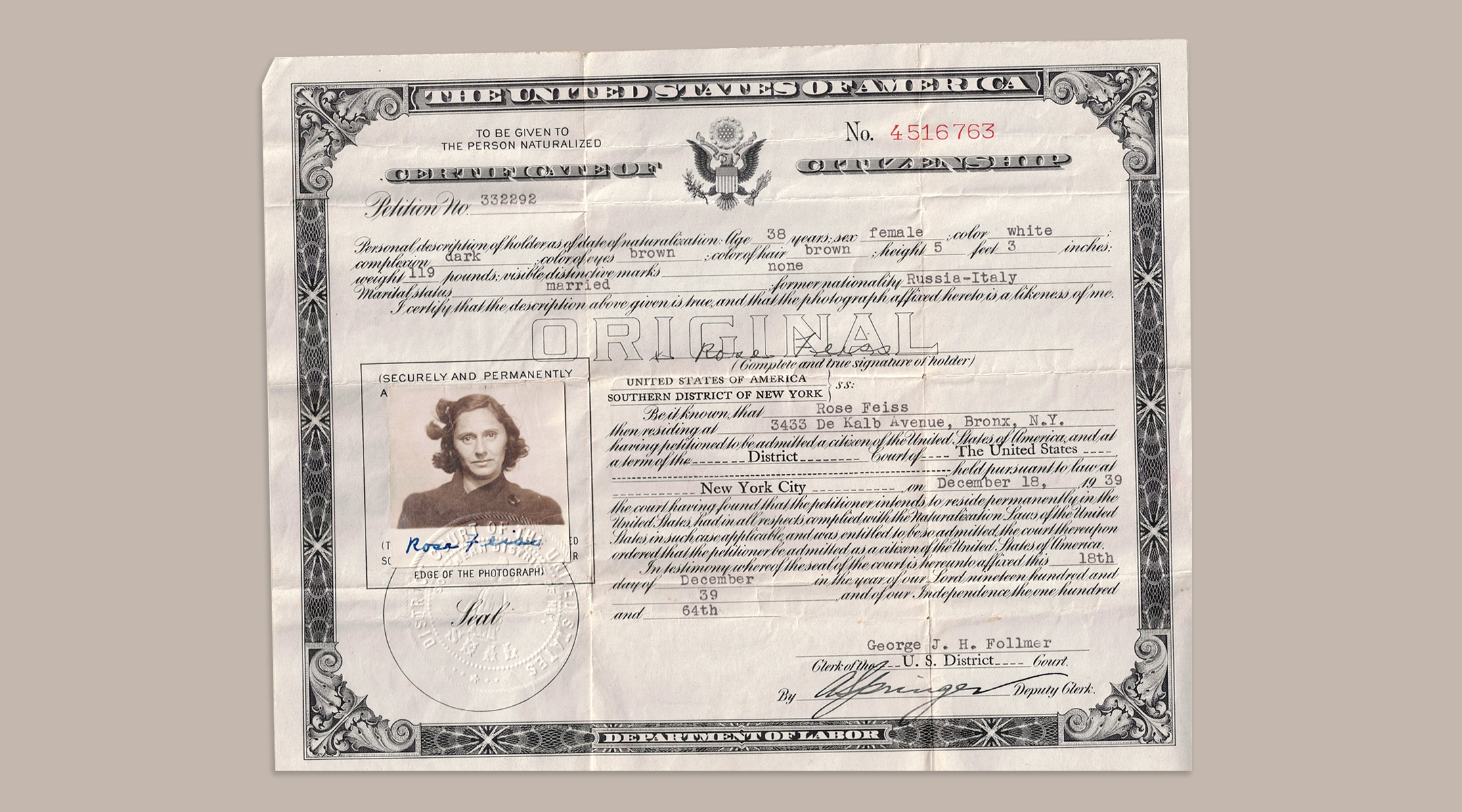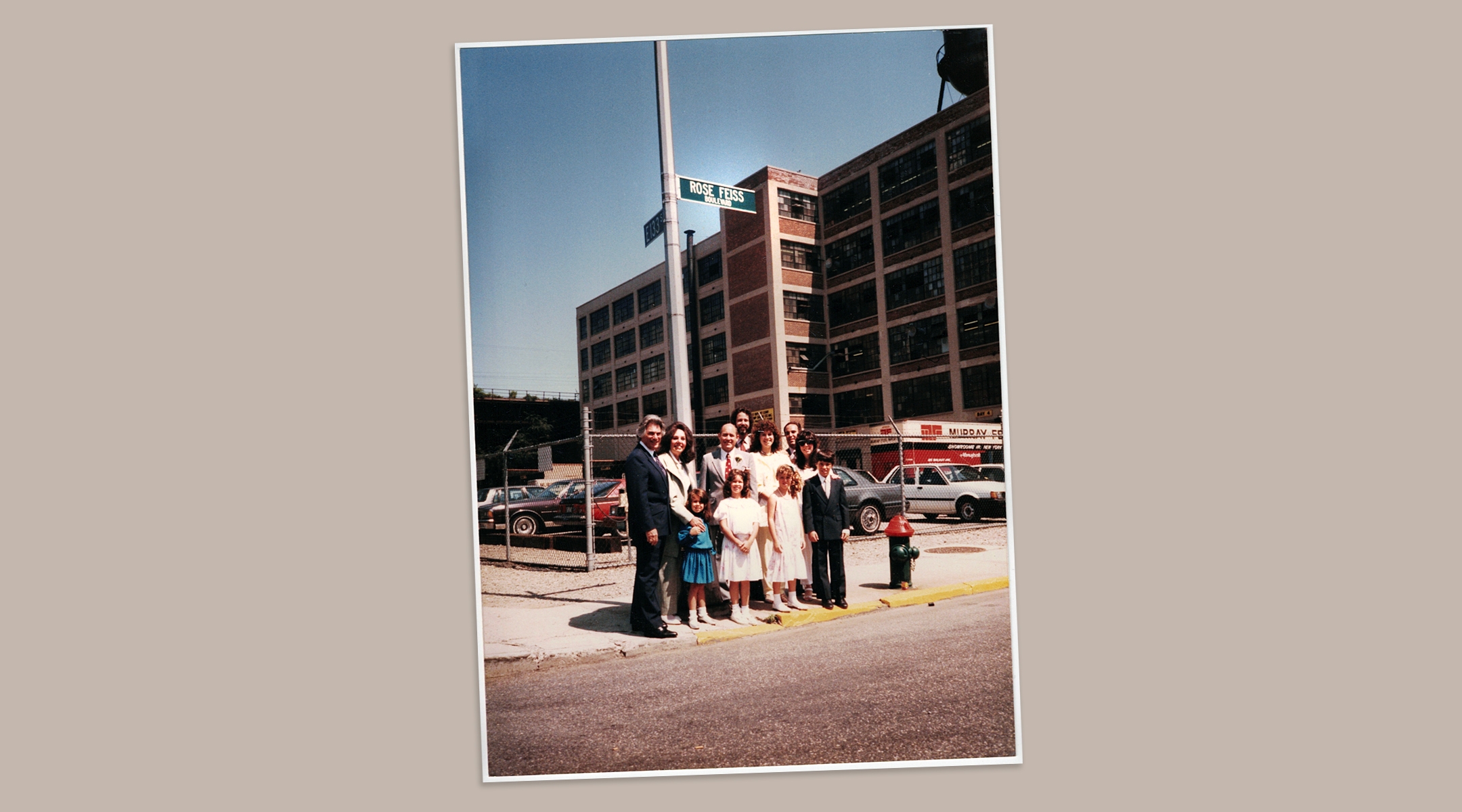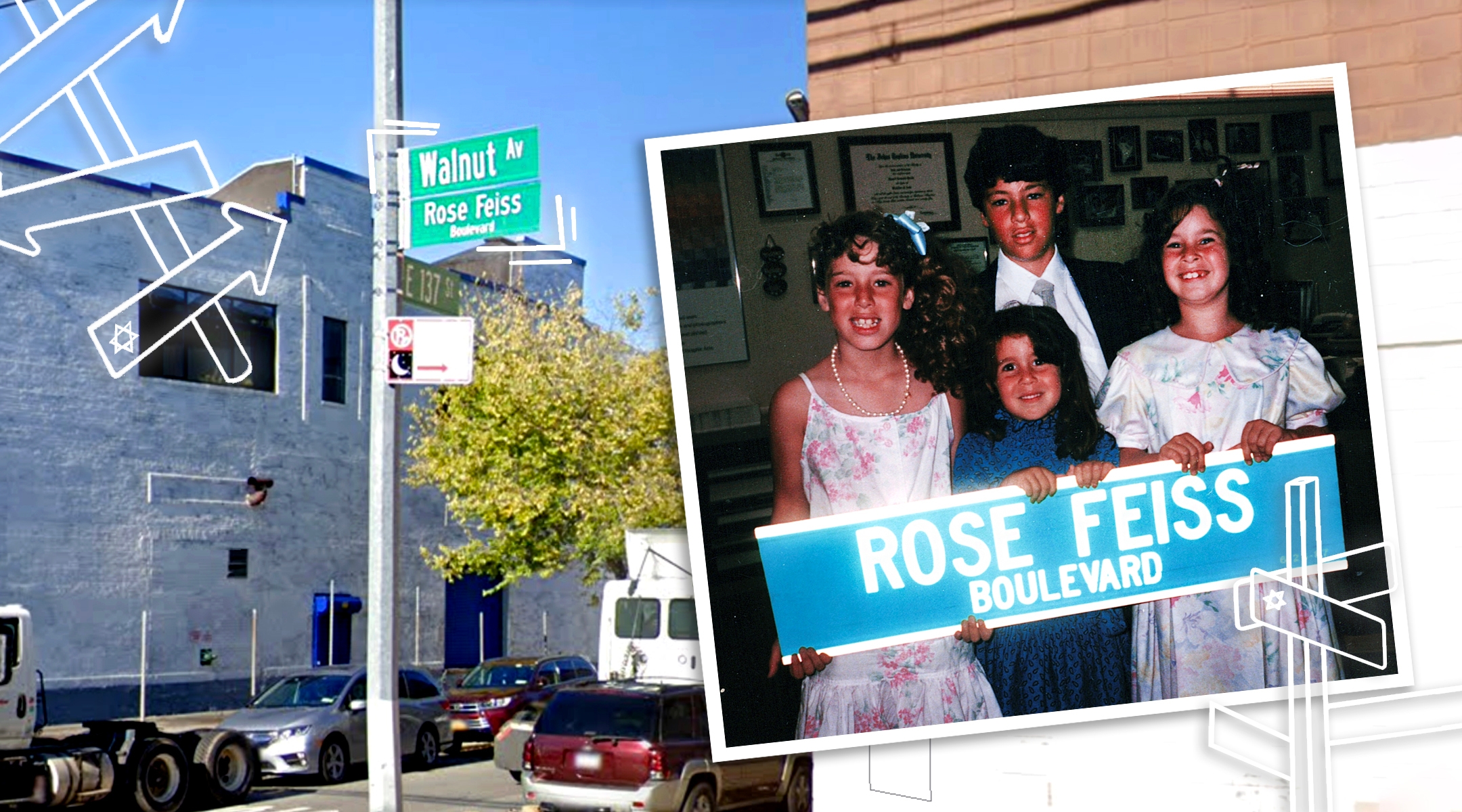(New York Jewish Week) — In the industrial Port Morris neighborhood in the Bronx, a 10-block stretch of Walnut Avenue bears the name Rose Feiss Boulevard, honoring the Jewish immigrant woman who lived, worked and touched the lives of many in the borough.
Rose Feiss was born in Minsk, Russia in 1901. She immigrated to the United States with her family as a young girl: first to Morgantown, West Virginia, where her father was a rabbi and shochet (kosher butcher). The family spent their summers in Moodus, Connecticut. Eventually, Feiss and her family moved to the Bronx — a more circuitous route than most Jewish immigrants — where she met her husband, David, at a social club in 1922. She gave birth to their son Murray in 1926.
When Murray went overseas to fight in World War II, Feiss launched a cottage business in the South Bronx manufacturing lampshades. Feiss started StyleCraft as a way for wives and mothers to earn money and stay busy during a stressful time; during the war, the business employed around a dozen women.

Rose Feiss married her husband David in 1922. She became a naturalized US citizen in 1939. (Courtesy June Hersh)
“It seems like a very random act, other than the fact that my grandfather [David] owned a wire factory in the South Bronx — so he made the frames and she would bind the shades,” Feiss’ granddaughter, June Hersh, told the New York Jewish Week “She was just very industrious.”
Eventually, Hersh said her grandparents acquired a “little factory” in the South Bronx for her grandmother’s lampshade business and her grandfather’s wiring company, Associated Wire. “She was always very business-minded, forward-thinking and independent,” said Hersh, a food writer who published her fifth book, “Iconic New York Jewish Food,” earlier this year. “It’s those qualities that led her to become a force in the South Bronx. She would even make pots of food at home and travel with them on the subway so that she could feed the women who were working at the factory.”
When Murray Feiss, who is Hersh’s father, returned from his service in the Navy, he attended business school at NYU with the aim to help his parents unite their wiring and lampshade concerns and grow a formal business. In 1955, the family launched Murray Feiss Lighting in the South Bronx — it eventually became one of the largest lighting companies in the world.
And though the business bore her son’s name, Rose, whom Hersh describes as “small and mighty,” was always in the room when business decisions were made. As the story goes in her family, Rose came to work well into her 80s, where she would do her rounds on the factory floor and then retire to the couch in Murray’s office — but only to rest her body, not her mind.
As the business flourished, members of the growing family took on roles at the company — Hersh, along with her mother Dorothy, sister Andrea and their husbands Ron and Robert, all worked there. “My husband, who, along with Robert, was co-president of the company, will never forget being in my dad’s office for a major meeting with a bank,” Hersh said. “My father and my brother-in-law and husband were making a deal with the bank and, all of a sudden, they hear my grandmother in the background — who they thought was asleep on the couch — yell, ‘Murray, you’re an idiot!’ because she didn’t like the terms of the deal.”
“That was very much like my grandmother — she was really a force,” Hersh added. “She really set the tone for the ways the women in our family interact and comport ourselves, because she was fierce — but not in a not in a harsh way, in a very determined way. She had very strong convictions.”
Hersh added that her grandmother’s strong sense of Jewish values is what allowed her to lead the company with empathy and conviction. “She was very, very proud of her Jewish heritage and her Jewish roots and she imbued us all with a sense of tzedakah,” she said. “She lived her life as a businesswoman with that philosophy.”
After her death in 1984 at age 83, Murray Feiss sold the lampshade portion of the company — which was Rose’s passion — but continued the lighting side of the business. Still, the family wanted to honor their matriarch’s rich life and legacy in the Bronx. Hersh said her brother-in-law, Robert Greene, wrote to Wendell Foster, the City Council member for the South Bronx, and Stanley Simon, the Bronx borough president, to ask if there was anything the city could do.
“She always had confidence in the people of the Bronx,” Hersh said. “Most of the people she worked with — and she always said they worked with her, not for her — were immigrants… She sent their kids to college, cosigned mortgages and dressed up as Santa Claus every Christmas for the Christmas party. She had such faith in this community.”
“This was part of her philosophy and the way she viewed her role in life: She did well and she wanted to help others do well in turn,” Hersh added.

A family photo of Rose’s descendants taken underneath the Rose Feiss Boulevard sign unveiling on June 24, 1987. (Courtesy June Hersh)
Feiss’s generosity was recognized by the city. Members of the family — Hersh, her sister Andrea Greene and her brother-in-law Robert Greene — were invited to Gracie Mansion by then Mayor Ed Koch, where he signed his approval to co-name 10 blocks of Walnut Avenue, where the family’s factories were, Rose Feiss Boulevard.
Rose Feiss Boulevard was unveiled on June 24, 1987. At the ceremony, Feiss’ great-grandson, Adam, gave a speech on behalf of the great-grandchildren about Feiss’ legacy and the importance of doing the right thing, Hersh said.
“She was not the center of attention, by any means, but I think she would be immensely proud,” Hersh said of the co-naming. “My grandfather would also be exceptionally proud; he was supportive of a woman working long before most women left the home to work outside the house.”
After 50 years in business, Murray Feiss Lighting was sold in 2004 — though Rose Feiss’ legacy continues in the South Bronx today. Many of her descendants still live in the region; Hersh, who lives in Manhattan was driving in the Bronx recently and her GPS navigation told her to take a right on Rose Feiss Boulevard. “It was really cool,” she said, adding that she sent a screenshot to everyone in the family.
“Knowing my grandmother, she would be most proud that it’s a legacy for her children, her grandchildren, her great-grandchildren and something that they can point to,” she added. “This poor girl from Minsk, with no language and no skills, came to this country and left an imprint.”
The New York Jewish Week brings you the stories behind the headlines, keeping you connected to Jewish life in New York. Help sustain the reporting you trust by donating today.





